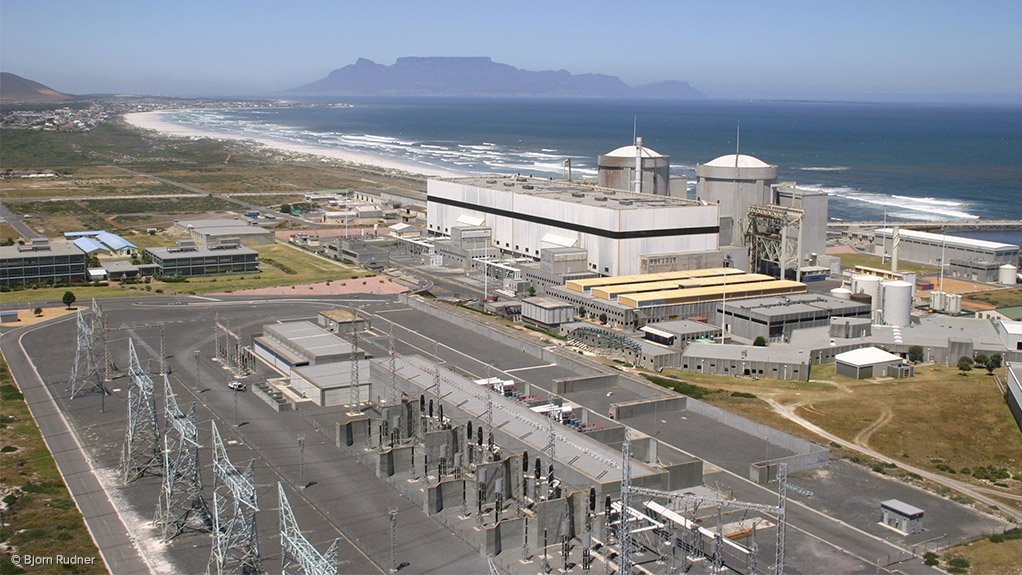NNR hosts new round of talks with public over Koeberg’s life extension
The National Nuclear Regulator (NNR) has started with another round of hearings on June 3, owing to concerns about the last consultation process having been insufficient.
The regulator conceded that the public required more information, but only after civil society organisations such as Southern African Faith Communities’ Environment Institute (Safcei) voiced its dissatisfaction with the overall governance and public participation process for the Koeberg long-term operation (LTO), or lifetime extension.
Other organisations that also raised the same concerns include Project90by2030, Save Bantamsklip, Earthlife Africa Johannesburg and Koeberg Alert Alliance (KAA).
Safcei executive director Francesca de Gasparis lists one of the main issues as being that the NNR held public hearings before the actual release of essential documentation, including a latest seismic risk study.
She says issues of safety are integral to determining the safety of the LTO, especially as the last scientific study to assess seismic risk was done in 1976.
“The public needs to have sufficient data and time to make meaningful submissions. The safety of the LTO of Koeberg is a compliance and governance issue that cannot be taken lightly,” De Gasparis states, questioning why South Africans have to accept 20 more years of a nuclear power station that would get ten years – at most – in France.
The organisations and members of the public have also raised concern about a number of safety recommendations made by the International Atomic Energy Agency (IAEA) that have not been implemented at Koeberg or, if implemented, have not been shared with the public.
These recommendations include a complete revalidation of the qualification of cables in the containment building, the full functionality of the containment structure’s monitoring system, the revalidation of time-limited ageing analyses and aging management of the structures, systems and components.
“Failure to provide confirmation that these issues have been duly addressed has left no room for meaningful engagement. The containment structures storing high level waste are still cracked, one of which was a 110 m crack back in 2022 and aging management plans have not been shared with the public,” Safcei says.
Additionally, Safcei says, an emergency compliance drill conducted at Koeberg in November 2022 revealed 22 noncompliance issues, including that the Mass Care Centre at the plant is not suitable to accept and respond to accident victims that have been exposed to radioactive areas.
KAA says Eskom has not been forthcoming about how it has addressed the critical safety issues highlighted by the IAEA regarding the LTO.
“At first, Eskom did not want to make a safety case report available, then they released a heavily redacted version. After much pressure, the safety case is now available, but the 289 supporting documents are unavailable to the public. Why the secrecy,” KAA member Lydia Petersen asks.
Earthlife Africa representative Makoma Lekalakala says extending Koeberg’s lifespan also means more toxic waste, hence the need for expanded disposal facilities on site and at Vaalputs in the Northern Cape, which stores low-level waste materials.
She adds that no feasibility studies provided to the public have shown that such expansions are doable, especially considering the proximity to local communities.
“The conditions of the infrastructure to extend the life of the plant, in addition to the environmental and climate impacts, all affect the people and the planet,” Lekalakala notes.
Project90 member Gabriel Klaasen agrees, saying Koeberg is already storing 40 years’ worth of high-level radioactive nuclear waste, for which there is no permanent solution. Once a week a truck containing low-level nuclear waste travels along the R355 alongside other motorists, with four accidents having occurred with these types of trucks over the years.
“If we do not have a solution for the existing waste, why would we extend Koeberg and add an additional 20 years of waste to the mess?”
De Gasparis concludes that not only is it unclear whether the plant is safe, but people have to accept that this plant will operate for another 20 years when there is much risk involved. If Eskom has addressed issues sufficiently, she implores the utility to provide proof of that.
ESKOM RATIONALE
The Koeberg nuclear power station, located 30 km north of Cape Town, is reaching the end of its 40-year designed lifespan, and Eskom has submitted its safety case to the NNR to extend the plant’s life by another 20 years.
Koeberg’s 1.8 GW generation potential is a key part of Eskom’s ability to provide sufficient power to the country.
Unless the NNR grants Eskom a 20-year extension on Koeberg’s operating licence, the plant’s two 900 MW reactors will have to shut down in July this year.
Despite having taken the decision to apply for an LTO extension in 2010, the programme has been massively delayed and Eskom is now rushing to make the July 21 deadline.
Eskom says the cost of a nuclear plant LTO project is significantly cheaper than adding new onshore wind or solar PV. The primary energy cost of Koeberg is 99c/kWh, compared with 49c/kWh for wind and 43c/kWh for solar PV.
Eskom also maintains that nuclear is one of the lowest carbon emission sources of energy in the country and that the waste produced during the LTO of Koeberg would be moved to an off-site storage facility to be developed by the National Radioactive Waste Disposal Institute.
The Koeberg plant, despite having older infrastructure, which Eskom says does not necessarily mean the plant becomes less reliable or stable, lends stability to the national grid and has provided reliable baseload power to the national grid for many years.
By performing comprehensive safety assessments and applying good asset management practices, nuclear power plants can achieve safe plant operation for more than 60 years, Eskom states.
Article Enquiry
Email Article
Save Article
Feedback
To advertise email advertising@creamermedia.co.za or click here
Press Office
Announcements
What's On
Subscribe to improve your user experience...
Option 1 (equivalent of R125 a month):
Receive a weekly copy of Creamer Media's Engineering News & Mining Weekly magazine
(print copy for those in South Africa and e-magazine for those outside of South Africa)
Receive daily email newsletters
Access to full search results
Access archive of magazine back copies
Access to Projects in Progress
Access to ONE Research Report of your choice in PDF format
Option 2 (equivalent of R375 a month):
All benefits from Option 1
PLUS
Access to Creamer Media's Research Channel Africa for ALL Research Reports, in PDF format, on various industrial and mining sectors
including Electricity; Water; Energy Transition; Hydrogen; Roads, Rail and Ports; Coal; Gold; Platinum; Battery Metals; etc.
Already a subscriber?
Forgotten your password?
Receive weekly copy of Creamer Media's Engineering News & Mining Weekly magazine (print copy for those in South Africa and e-magazine for those outside of South Africa)
➕
Recieve daily email newsletters
➕
Access to full search results
➕
Access archive of magazine back copies
➕
Access to Projects in Progress
➕
Access to ONE Research Report of your choice in PDF format
RESEARCH CHANNEL AFRICA
R4500 (equivalent of R375 a month)
SUBSCRIBEAll benefits from Option 1
➕
Access to Creamer Media's Research Channel Africa for ALL Research Reports on various industrial and mining sectors, in PDF format, including on:
Electricity
➕
Water
➕
Energy Transition
➕
Hydrogen
➕
Roads, Rail and Ports
➕
Coal
➕
Gold
➕
Platinum
➕
Battery Metals
➕
etc.
Receive all benefits from Option 1 or Option 2 delivered to numerous people at your company
➕
Multiple User names and Passwords for simultaneous log-ins
➕
Intranet integration access to all in your organisation





















